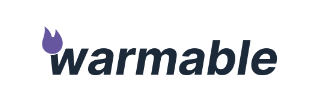As the UK works towards its net zero goals, significant changes are underway in the home heating sector, particularly in new-build homes.
A recent government consultation, as detailed by Ran Boydell, Associate Professor in Sustainable Development at Heriot-Watt University, a recent government consultation has brought to light the impending ban on boilers in newly built homes from 2025, effectively altering the future landscape of home heating.

Heating Homes With Hydrogen?
The report's revelation that hydrogen, once considered a potential alternative to natural gas, will not be a viable heating source is a significant development.
Despite the allure of "clean" hydrogen, produced without carbon emissions, the reality is that most hydrogen production still relies heavily on fossil fuels. The high cost and environmental impact of hydrogen production, as highlighted in Dr. Jan Rosenow's 2022 report, make it an impractical choice for domestic heating.
Heat Pumps: The New Standard
As boilers become a thing of the past, heat pump installation is set to become the norm in new homes. Heat pumps, which operate similarly to refrigerators or air conditioners, are not only energy-efficient but also offer a dual function of heating and cooling.
Their growing global popularity and cost-effectiveness, especially in well-insulated homes, mark a significant shift in how we approach home heating.
In fact, according to the International Energy Agency (IEA), global sales of heat pumps doubled in 2022 compared to 2019, indicating a rapidly growing market for this technology.
Additionally, a study from the Carbon Trust revealed that if heat pumps were installed in just 25% of suitable UK homes, it could lead to a reduction in annual carbon emissions by about 8 million tonnes, which is equivalent to taking approximately 2.8 million cars off the road.
Upskilling the Workforce: A Key To Successful Transition
The shift towards renewable heating systems, particularly heat pumps, necessitates a significant upskilling of the workforce within the construction and heating industries.
It's estimated that thousands of new jobs will be created in the renewable energy sector, with a substantial portion dedicated to heat pump technology. This presents an opportunity for existing workers and new entrants to acquire skills that align with the evolving demands of the energy-efficient, low-carbon market.
The Impact on Homeowners and Industry
For homeowners, especially those considering moving house, this shift means adapting to new technologies. While the initial investment in heat pump installation might be higher than traditional boilers, the long-term savings in energy bills and the potential positive impact on home insurance premiums due to their eco-friendliness make them a financially savvy choice.
The construction and heating industries will need to pivot accordingly. Professionals will need to upskill, focusing on installing and maintaining heat pumps and other renewable heating solutions. Additionally, they will need to know how to source new parts for these appliances, to ensure they can continue fixing and maintaining them.
Conclusion
The UK's net zero goals are reshaping the home heating landscape, with a clear move away from traditional boilers and towards more sustainable options like heat pumps.
This transition, while challenging, presents an opportunity for innovation and growth in the construction and heating sectors, and a step towards a more sustainable future for homeowners.








